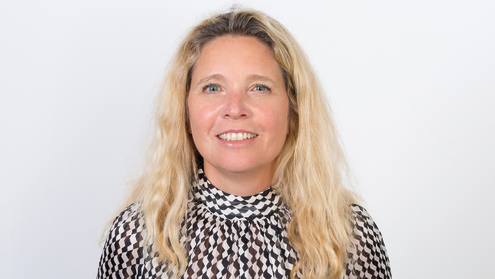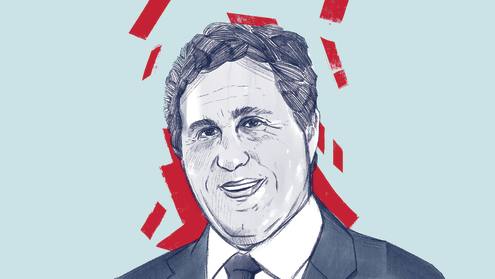To solve the world’s greatest challenges — such as poverty, hunger or sovereign debt — we must collaborate as people and nations to address them. Yet sadly, our world is becoming more fragmented, and thus less capable of responding to global development challenges, forestalling progress on the goals we care about.
To make progress on these urgent challenges, we need to collaborate on data-driven analyses of these issues and facilitate robust international collaboration to drive toward effective solutions.
Stronger multilateral co-operation is warranted to avert fragmentation and effectively address the risks and trade-offs facing policy-makers. Thankfully, there are promising efforts underway to make progress on some of the most pressing issues, while others require a co-operative multilateral jumpstart to get things working again.
Economic fragmentation
We see this clearly in the global economy, where economic integration has slowed and trade restrictions have surged, impeding the movement of goods, services and capital. This alarming trend undermines efforts to promote jobs and spur economic growth as supply chains are disrupted, market access is reduced, and goods and services become more expensive for nations and societies.
When our global economic ship begins to sink, it is often the passengers in the lower-level berths who are first to notice the water flowing into the ship.
The World Bank is right in pointing out that higher interest rates have severely limited low-income nations’ ability to fight poverty.
The recent spike in inflation has led advanced economies’ central banks to aggressively raise interest rates to control inflation, with dire consequences for emerging market and developing economies. The World Bank is right in pointing out that higher interest rates have severely limited low-income nations’ ability to fight poverty and could trigger a financial crisis in the poorest nations.
Meanwhile, the development bank’s figures show that higher-income countries restricting trade or re-shoring production of goods can significantly increase poverty in low-income trading partners, compounding their problems at a time when incomes in the poorest nations have already declined substantially, as the Covid-19 pandemic and war in Ukraine slowed global trade and development.
Responding effectively to these shocks will require international collaboration and co-operation, with a renewed spirit of multilateralism. We must utilise multilateral mechanisms and platforms to promote open and fair trade, fostering collaboration among nations and economic blocs, to jointly tackle economic challenges and hence safeguard the stability and resilience of the global economy. Reducing trade barriers and increasing poor nations’ capacity to produce goods for global markets will enable low- and middle-income nations to contribute productively to global value chains, lowering the costs of goods and lifting millions out of poverty with higher incomes and job growth.
During the Saudi presidency of the G20 in 2020, Saudi Arabia introduced the Riyadh Initiative to reform the World Trade Organization (WTO), a plan which was endorsed by the bloc’s leaders. Saudi Arabia launched and actively promoted the Riyadh Initiative on the Future of the WTO, which aims to identify common ground and shared principles for the next 25 years of the WTO, and to provide the political support needed to make progress in the discussions on reforms among all WTO members. Strengthening these global institutions and processes is key to Saudi Arabia’s approach of bridge-building and investment in solutions which benefit us all.
Conflict-related trade restrictions
Recent shocks, including the ongoing war in Ukraine and the pandemic, have interrupted food and fertiliser exports, contributing to increasing food prices and affecting the most vulnerable people and countries first and most severely. These shortages have prompted 86 countries in the past year to restrict exports or agricultural trade, further exacerbating a growing hunger crisis.
It is well known that food price spikes have a direct connection to malnutrition and illness. Now more than 130 million people live in hunger, and more than two billion are food insecure, according to the UN’s Food and Agriculture Organization. The hunger challenge is most acute in Africa, where more than 20% of the population faced hunger in 2021, compared with about 12% globally. The resulting effects are costly and long-lasting in both human and economic terms.
To address this human suffering and bolster global food security, we need to work together to provide direct support to the most vulnerable people and nations; ensure an open, transparent, predictable and non-discriminatory multilateral trading system, consistent with WTO rules; and effectively manage the global fertiliser supply, which has a direct correlation to food production.
Saudi Arabia is doing its part by working with the international community to support and facilitate affordable supplies of fertilisers, the price of which has risen 120% in the past year. We also supported the International Monetary Fund’s establishment of a food shock window for the most-affected countries, as well as multilateral development banks’ joint action plan to respond to the crisis.
High sovereign debt
Many low-income countries are now in debt distress, causing liquidity constraints and limited fiscal space, which creates challenges when financing basic health needs and food security, and hinders their efforts to achieve the UN Sustainable Development Goals. Therefore, global coordination is needed to help low- and middle-income countries address debt vulnerabilities, and to enable swift and efficient implementation of debt-restructuring processes.
During the Saudi G20 presidency, we led efforts to create the Debt Service Suspension Initiative to allow low-income countries to use their scarce resources to invest in their Covid-19 response. We also spearheaded the creation of a global debt restructuring forum called the Common Framework (CF), which combines Paris Club and non-Paris Club creditors, including by facilitating discussion with private sector creditors to help accelerate stalled negotiations with debtors.
The G20 is continuing to strengthen the CF and we believe it must be institutionalised to lessen the crushing burden of debt, which weakens us all and deprives us of the wealth of poor nations’ human potential.
Saudi Arabia is among the top global donors as a percentage of gross national income (GNI) according to the Organisation for Economic Co-operation and Development, and in 2021 was the number one global donor, spending more than 1% of its GNI on development assistance. We fund multilateral and bilateral aid because it is an investment in future stability and growth of the global economy, strengthening regional and global trade while helping to reduce conflict.
Tending the multilateral garden
These kinds of global challenges are not new, but they are multiplying each year, challenging us to co-operate and coordinate to address them. Often intractable and unexpected, they require us to be prepared with effective multilateral solutions. To implement those solutions, we must build consensus around policies to address global challenges through more inclusive engagement with global economies, to protect both people and planet.
His Excellency Mohammed al Jadaan is the minister of finance for Saudi Arabia.












